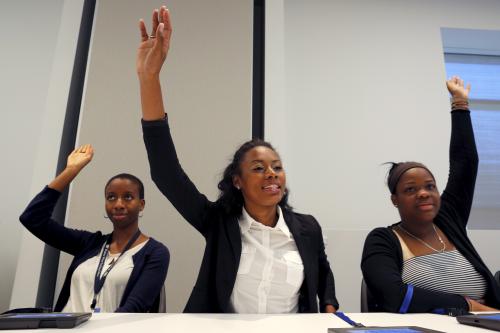- Moderator
- #381
If the current admissions standards were revamped, the impact on aspiring black students seeking to attend Harvard would be minimal from the standpoint of the actual number of blacks who are admitted.It’s now above 11% black, but regardless - only one in three would have qualified based on merit. As far as the legacy admissions, about half would have qualified based on merit. So while the legacies represent a higher percentage, a higher percentage would have qualified regardless.
Regardless, let’s get rid of all the favoritism.
As an aside, I once had the “pleasure” of working with two Harvard grads at a company where an Ivy degree was given top priority. One was the white son and grandson of Harvard men, and the other was a black young man.
Both were mediocre, but the white kid was suffocating to work with. He had obviously grown up with an air of entitlement, and thought he was the smartest in the room - constantly correcting people with 30 years more experience, and being wrong about it. NOBODY wanted him on their team.
The black kid was a nice guy. Based on the aptitude he demonstrated - he needed the same “repeat” instructions as the kids from no-name colleges - he was probably among the majority of black students who were admitted do to his race. I suspect he knew this, as he did not exhibit the same arrogance that the legacy did, and I much preferred working with him.
Just two instances out of thousands, but still….thought it might be interesting. Neither one would have gone to Harvard without favoritism.
However the share of Asian students would increase exponentially.
The long term outcome for the legacy admissions would be interesting.

